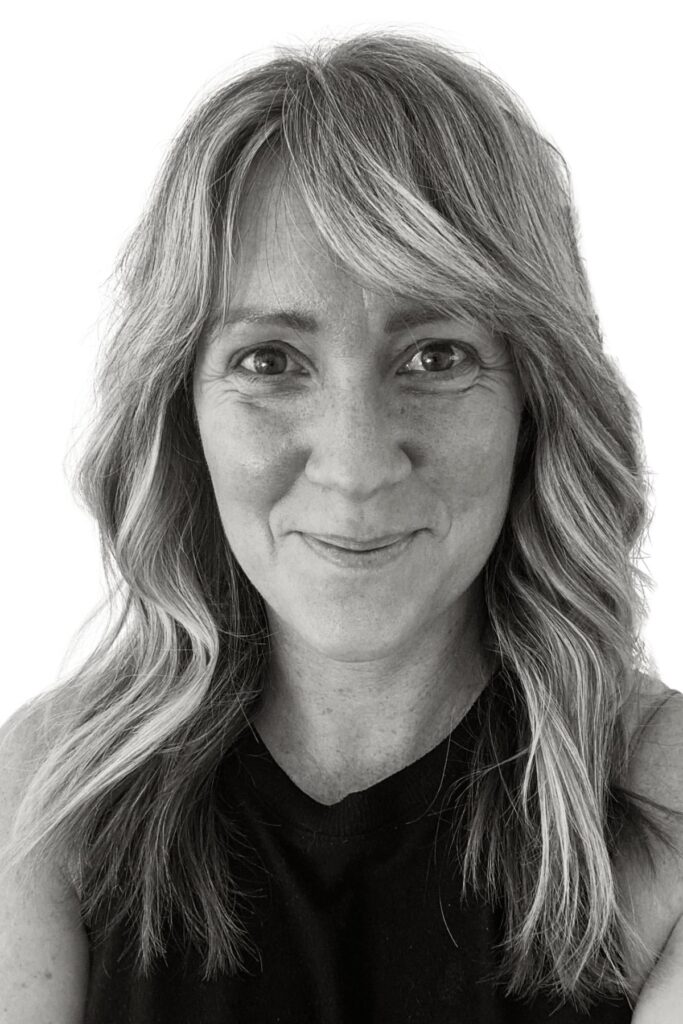Raise your hand if your background has nothing to do with copywriting. 🙋♀️🙋🙋♂️
That’s where 99.9% of us start, too! Jenny is no different: She spent 10 years as a tennis coach in the United Kingdom, where she’s from, and New Zealand, where she has lived for more than 15 years.
After another decade working for Tennis New Zealand, Jenny wondered if it was even possible to transition to another career.
Spoiler: Jenny effectively changed careers. On today’s episode of the Build Your Copywriting Business podcast, she’s sharing her tips for what to consider if you want to change careers.
But beyond that, Jenny is sharing how she used her previous career experience to launch her copywriting career—and quit her full-time job after sending her second invoice.
If you’ve ever had the thought, “Am I stuck here forever?” you need to listen to Jenny’s story.
Whether you’re looking to transition to copywriting or still exploring your options, Jenny offers inspiration to realize you are never stuck.
TUNE IN: Spotify | Apple Podcasts | Stitcher
Prefer to watch the episode? Hit play below (plus, hit “cc” to toggle on closed captioning)!
A Sneak Peek at the Episode
[02:16] I worked in sport. and On my early 20s I became a tennis coach. I was very much pigeonholed in tennis for a long, long time. And my career with Tennis NZ was wonderful. It was 10 years as a employee.
[04:55] During that whole period, what should I do next? Am I just going to be in tennis forever? Because that, whilst it’s great. That’s quite an intimidating thought and the flexibility is kind of zero. I always did a lot of writing, whether it was business administration or program development or writing lesson plans.
[08:14] This first career book recommendation is called What Color Is Your Parachute? I worked through that and realized how much I enjoyed working on my own. I like to work independently with no distractions. I like having a real clear start and finish to a project.
[10:08] It wasn’t until I started the CCA modules more formally. It’s not just writing and writing anything, but there are patterns and structures and things that you need to highlight what comes first, what comes second, what comes third and having all of that.
[10:28] In landing clients, just started talking to people. I started telling people I was interested in doing this on the side and I’d done a few of the CCA workbook things. It’s been fascinating. So I didn’t realize how vast my network was through sport and through the role that I had in tennis.
[14:10] I’d been thinking about what else I could do? What was my options beyond, not only beyond tennis, but beyond sport. That whole kind of self analysis, self reflection period, and made the move into studying. I signed up to the CCA in July, the last year or so, or two years in my job at tennis.
[16:16] My first sort of retainer client is to manage his social media. A little bit of behind the scenes admin as well. But mostly, social media stuff, mostly LinkedIn, Instagram, and Facebook for him, to promote his books and to promote his video blogs that he did each week as well.
[21:49] I’m in the middle of some projects for old colleagues that were in tennis and now in different sports. I’m so grateful to my sport community because whilst I thought I’d get away from sport, I haven’t, but I’ve got more balance now.
[26:45] I’m better at structuring my day so that, obviously when you’re working for yourself and your income, there’s nothing better rocket up the butt than your income being dictated by how much you work.
[27:54] I’ve got quarterly and monthly structures as well, like quarterly reviews. And monthly portfolio updates or think days and think about my income goals for the year and everything like that.
[29:33] So in 2023, I’ve spent three months in Europe, a little bit in England with my family, but also in Sweden and Prague and Berlin and France. And I worked. Funnily enough, I think those three months, I build more income than I had done in the six months prior.
[35:00] Networking is so helpful. And it can be done in different ways. I do a little bit in person, but my networking is mostly through LinkedIn and sort of sharing what I do on there. Local groups are great, like just talking to people, telling people what you do, it makes a big difference.
[35:40] Definitely don’t be afraid to shout from the rooftops in a way that you feel comfortable with, because it is awkward talking about yourself. I find it much easier to write for other people than I do myself.
[36:15] The second thing would be like structure for me. I’ve got spreadsheets where it’s like, okay, how much do I want to earn a year? How much does that equal per quarter? How many realistically? How many working weeks are there in that quarter?
[37:10] The other book I’m going to recommend is called The 12 Week Year. That talks about lead indicators and lag indicators. If you’re talking about income, a lead indicator is how many pitches you’re doing each week. Or how many clients you’re signing up each week. And a lag is how much you made at the end of the month. That’s retrospective.
Must-Hear Takeaways
As with every episode, we highly encourage you to listen to the entire conversation! But here are a few of the highlights:
“You won’t know how crap your situation is until you’re out of it. And you won’t know how you feel about something until you’re reflecting on it in two years time.” – Jenny
“You have to say things in six different ways so that it clicks with the person. How does that person process information and how do they want to hear this thing or read this thing?” – Jenny
“We get acclimated to where we are, and it’s hard for people to believe that things could be better.” – Nicki
“I promote myself as a copywriter and I look for copywriting jobs. But just this network is feeding my current network is feeding me.” – Jenny
“You’ve already made that money and you can’t change that figure. But you can change the lead indicators, which are the proactive steps you’re taking to make the lag or to make the outcome happen.” – Jenny
“The two big things, just set yourself, get your goals, get your structure nailed, get your weeks and your months and your quarters sorted out.” – Jenny
Mentioned in the Episode
- 5 Keys for Getting Valuable Connections on LinkedIn
- Use Copywriting Networking to Help Land More Clients
- Jenny’s Portfolio – lovegrovecopy.com
- The Book: What Color Is Your Parachute?
- The Book: The 12 Week Year
Related Links
- Ep 140: Traveling Europe While Running a Copywriting Agency—Chris’s Story
- Ep. 73: Bridging the Gap from Quitting a Job to Full-Time Freelance
Get an *Exclusive* Bonus Recording!
Tell us what you love about the podcast and what you hope to hear next! When you do, you can get access to an exclusive bonus recording featuring five wildly successful entrepreneurs who share what they do (and don’t!) look for when hiring copywriters. You do not want to miss it!
Get all the details on how to get your recording here »
About the Build Your Business Podcast

Ready to turn your love of writing into a successful copywriting career?
Join professional copywriters Nicki Krawczyk and Kate Sitarz to get the tips, tools, and training to help you become a copywriter and build a thriving business of your own. Nicki and Kate have 20+ and 10+ years of experience, respectively, writing copy for multi-billion-dollar companies, solopreneurs, and every size business in between.
Whether you want to land an on-staff job, freelance full-time and work from wherever you want, or make extra money with a side hustle, the best place to start learning is right here.
